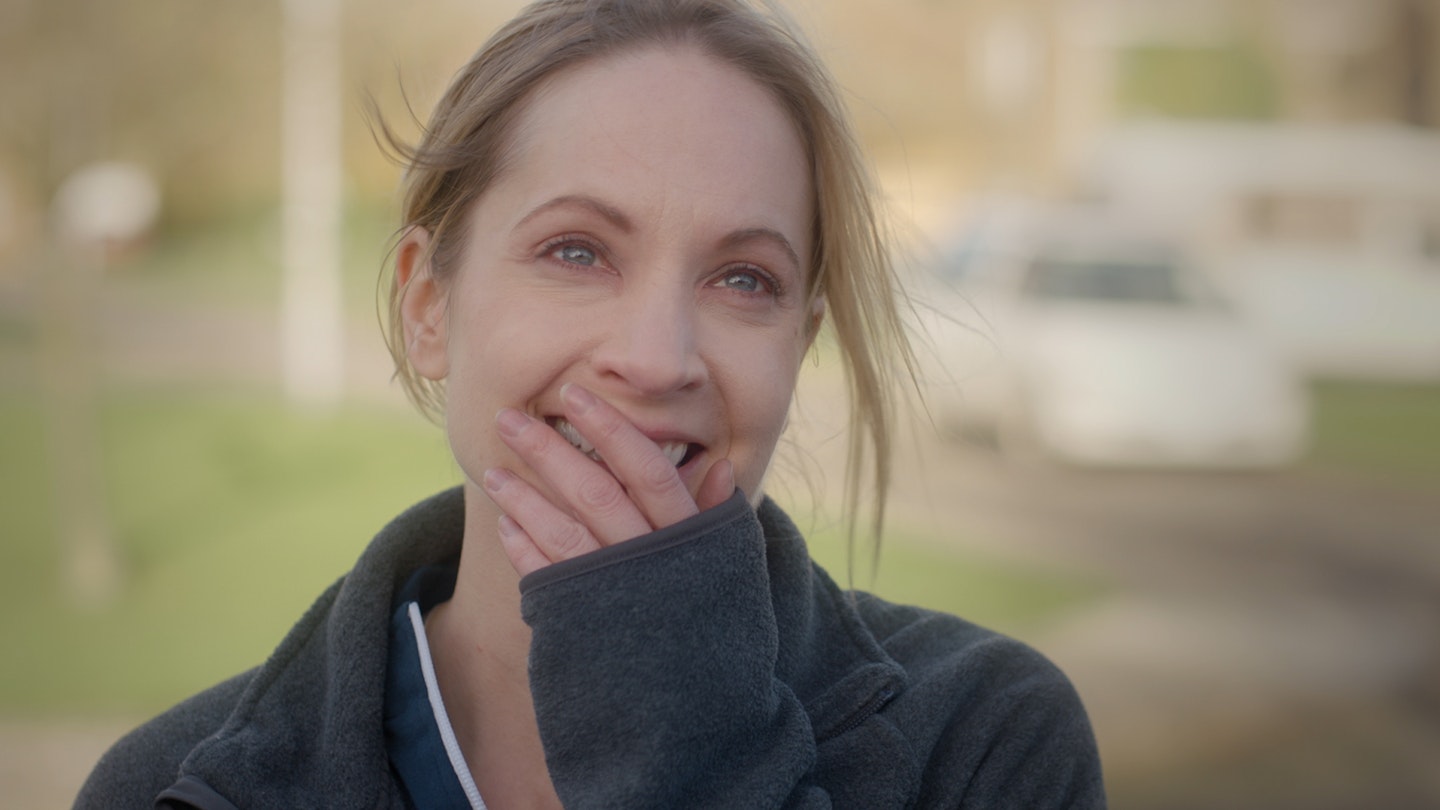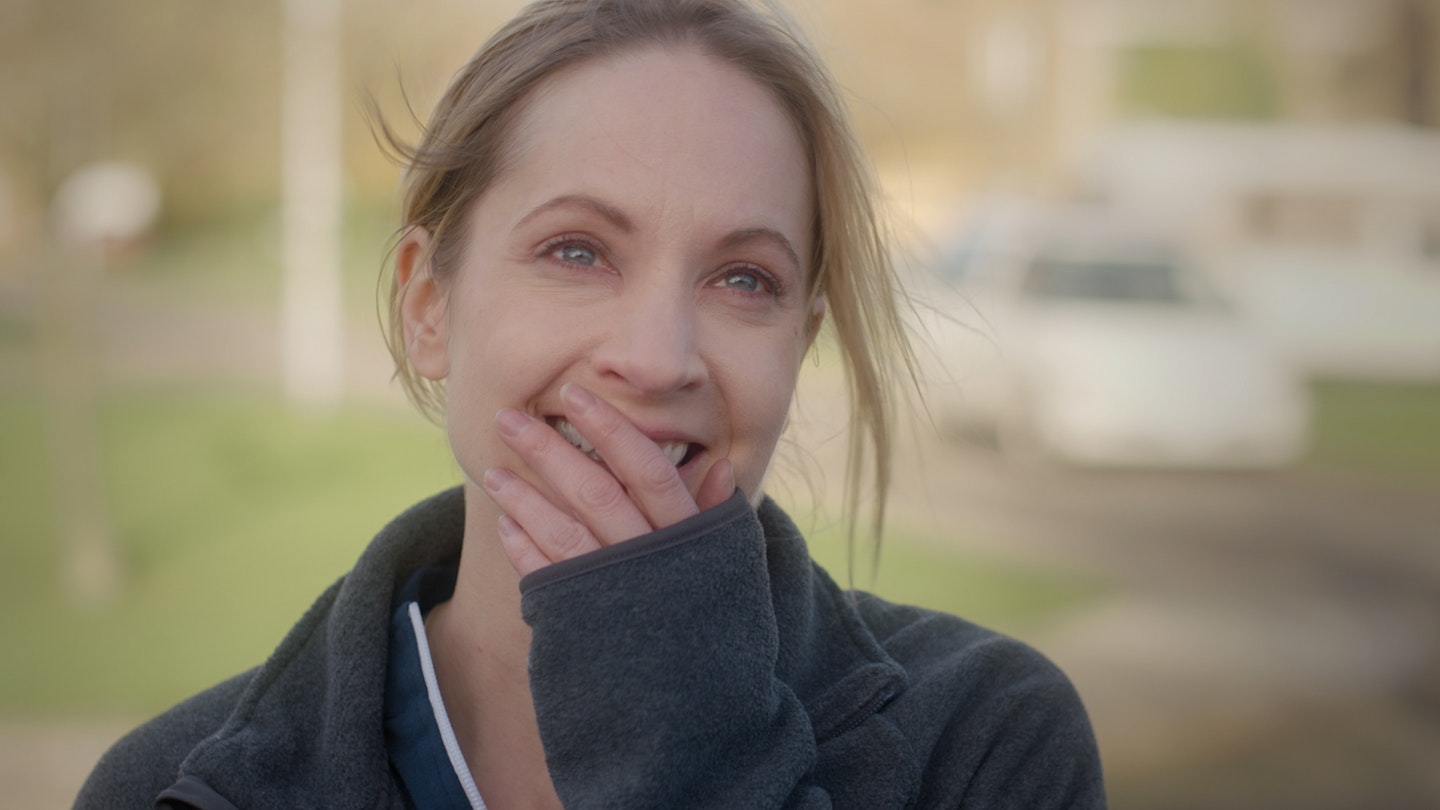
There's a lovely moment in Bill Clark's poised account of true-life couple Tom and Nicola Ray's struggle to overcome the shattering effects of a late-diagnosed bout of septicaemia. Children's author Tom had told his young daughter Grace (Ellie Copping) a story about saltwater starfish being able to re-grow their lost rays. So, when he has his limbs amputated and much of his lower face is removed during his excruciating battle with sepsis, Grace steals a cruet from the dinner table and pours salt into the nearby reservoir in the hope her daddy can regenerate. Not only is this a charming display of innocent faith, but it also reveals a dramatic restraint that isn't always evident in this otherwise laudable attempt to raise awareness about a pitiless disease.
Notwithstanding some superfluous childhood flashbacks, Clark sets the scene well, with Clive Norman's camera capturing colour and vivacity as Tom and Grace fly a kite beside Rutland Water. He also conveys the onerous burden placed upon the pregnant Nicola when doctors request her consent for radical surgery. But, by glossing over Tom's initial rehabilitation period, Clark withholds key emotional information that makes Tom's decline into wine-fuelled bitterness and resentment towards his mother (Phoebe Nicholls) and mother-in-law (Michele Dotrice) feel unduly melodramatic.
Froggatt's speech pitching for a fairer deal for those debilitated in non-combat or accident scenarios also sits awkwardly. But the point is worth making and Clark drives it home without sentimentality by having Ray body double for Riley to supplement Melissa Lackersteen's extraordinary facial make-up. Yet, while Riley impresses, Froggatt excels in the home truths scene that reinforces the message that victims are rarely entirely alone when they go through life-changing traumas.
